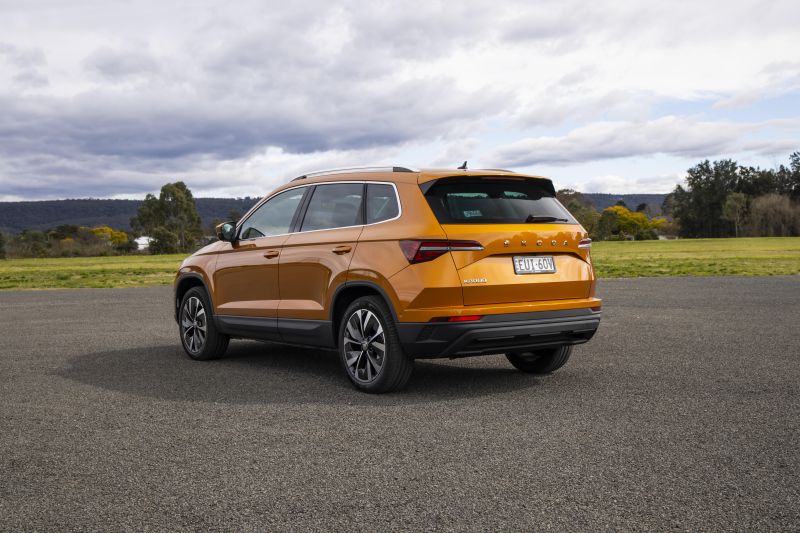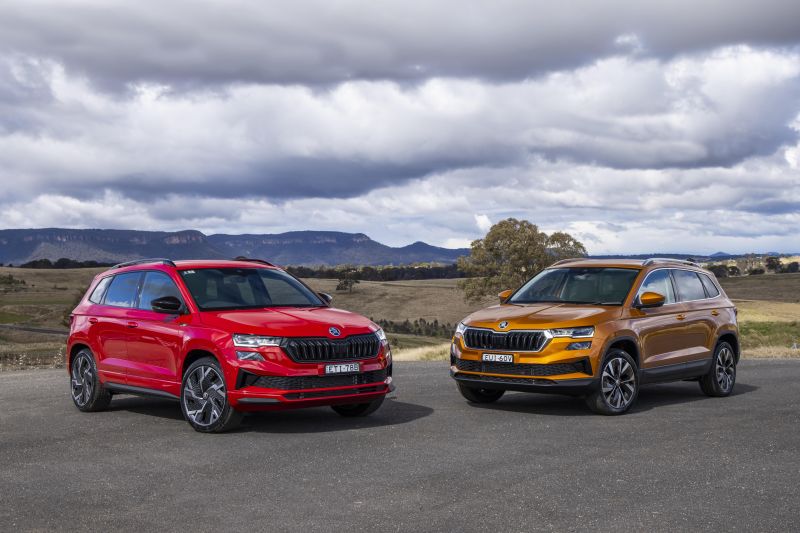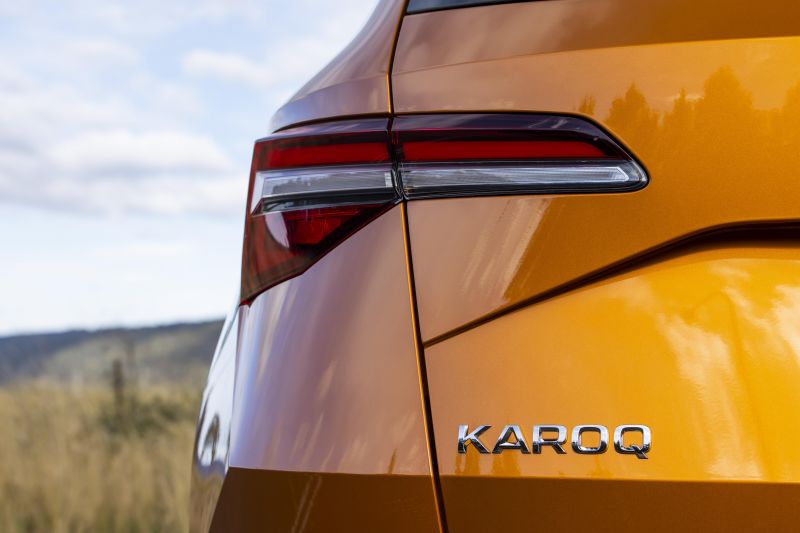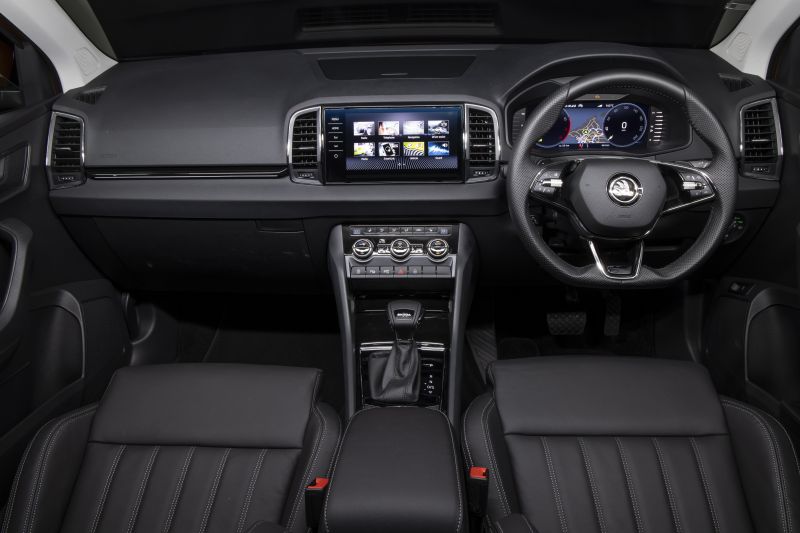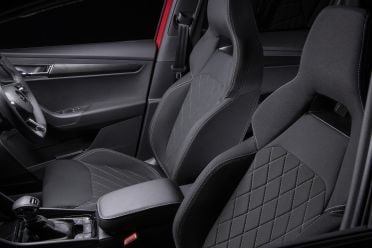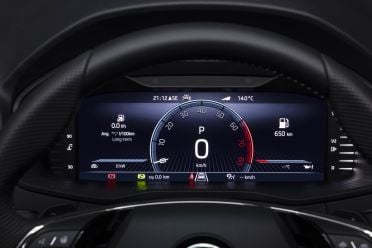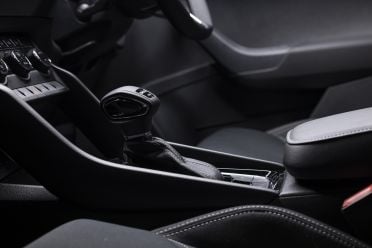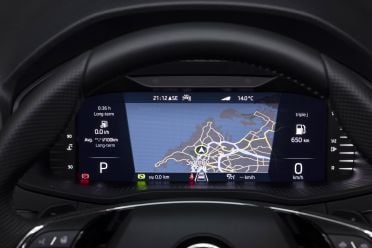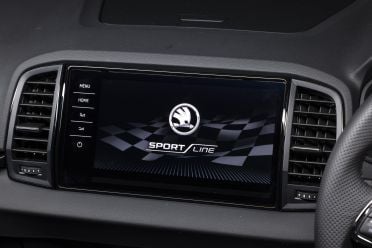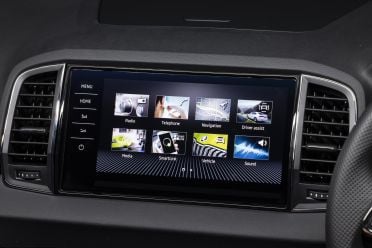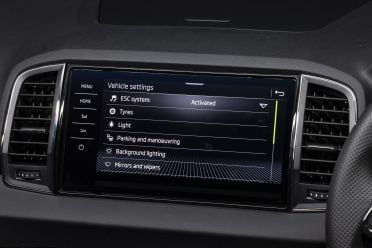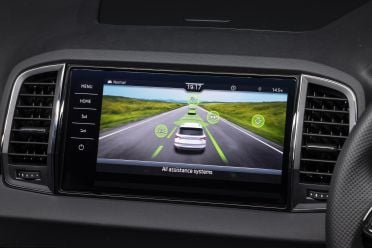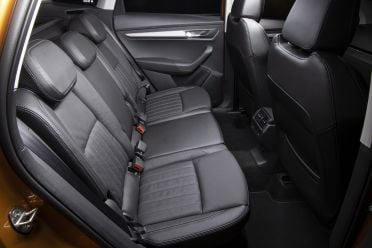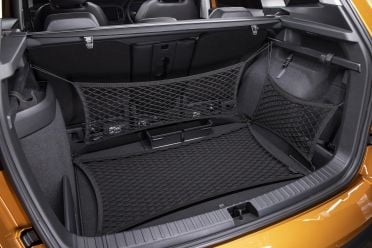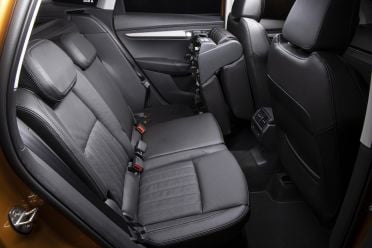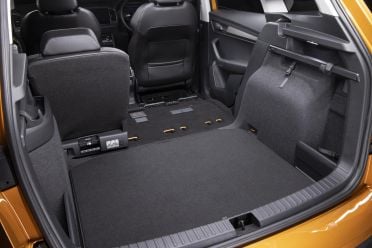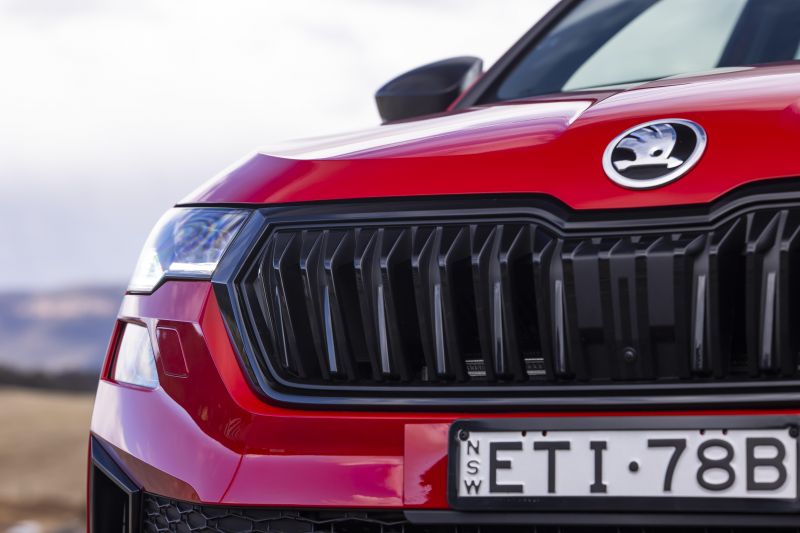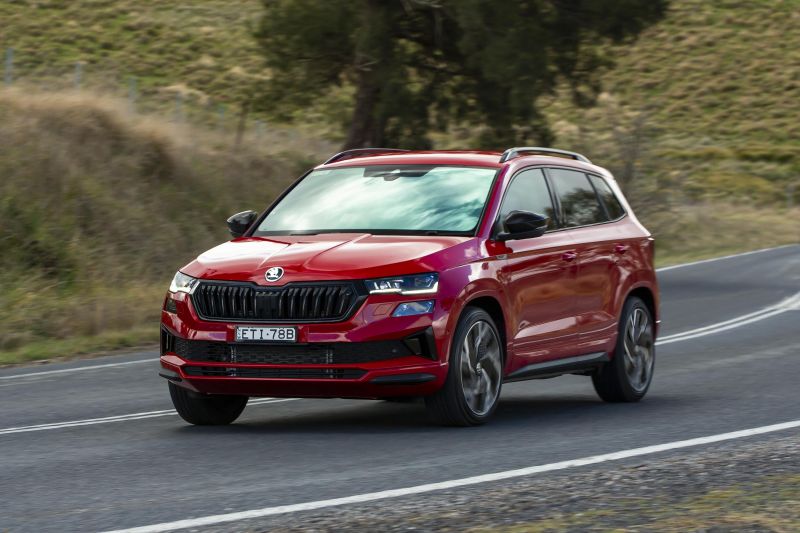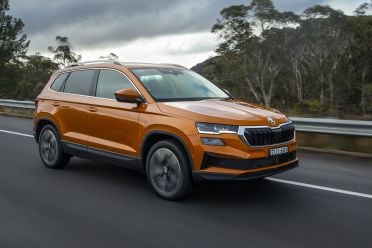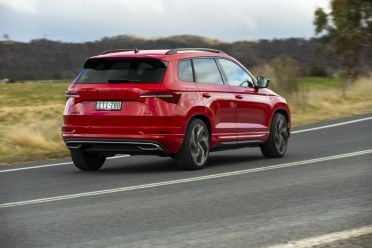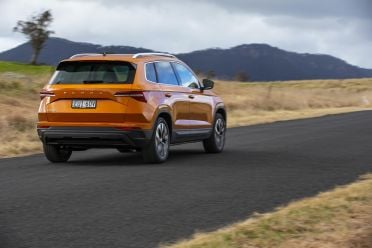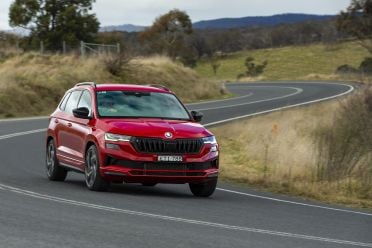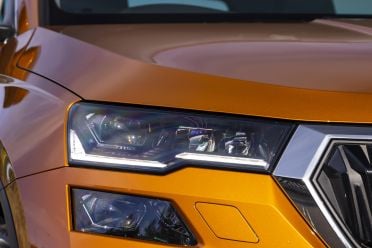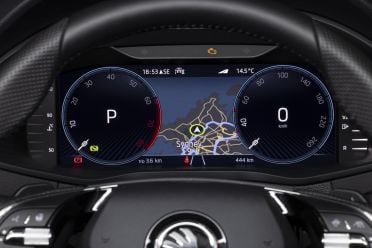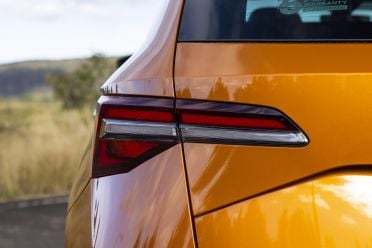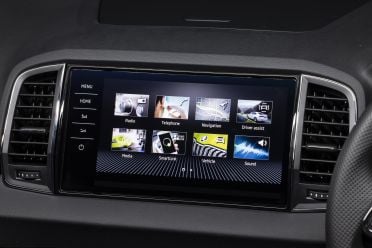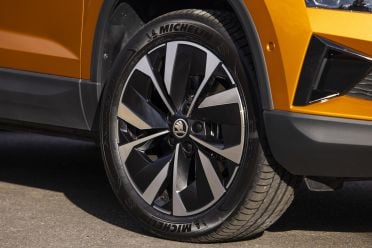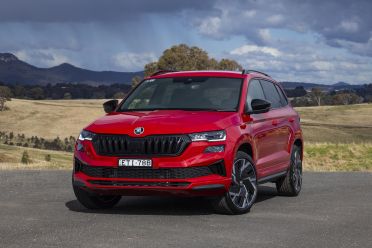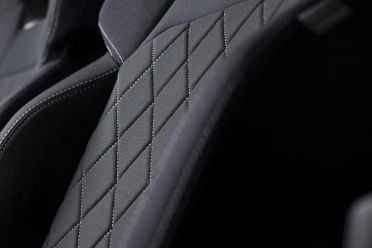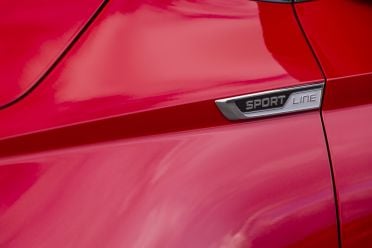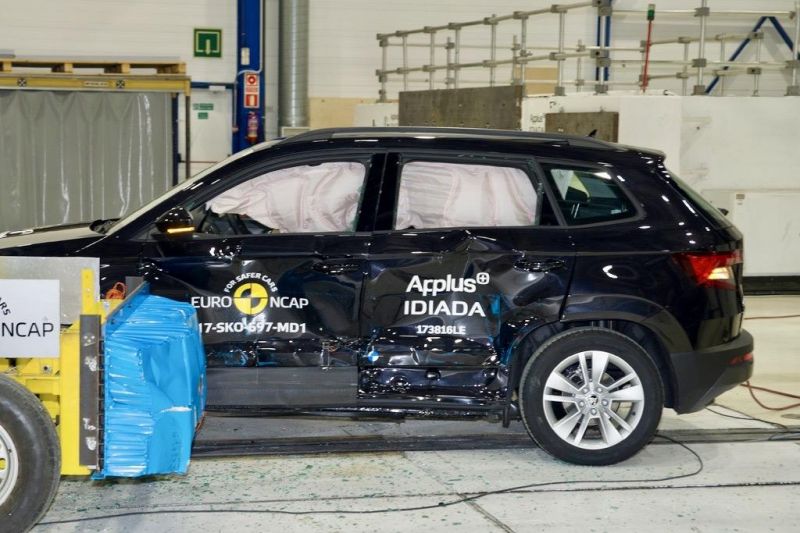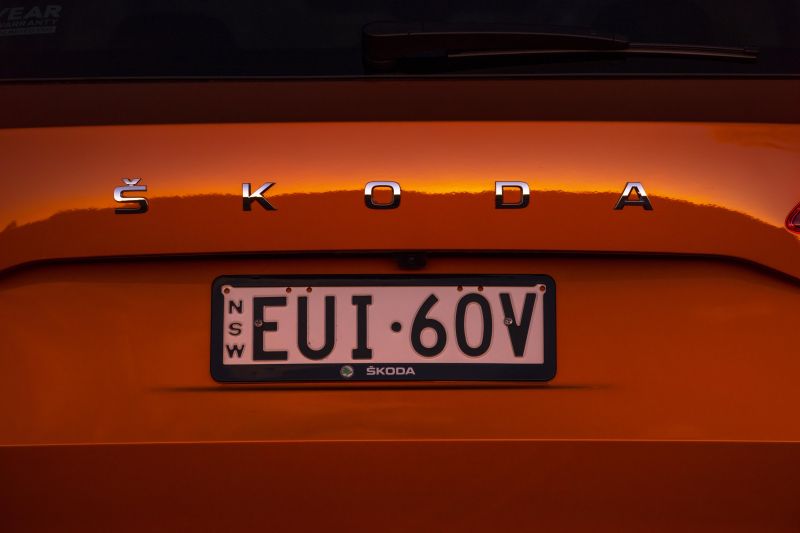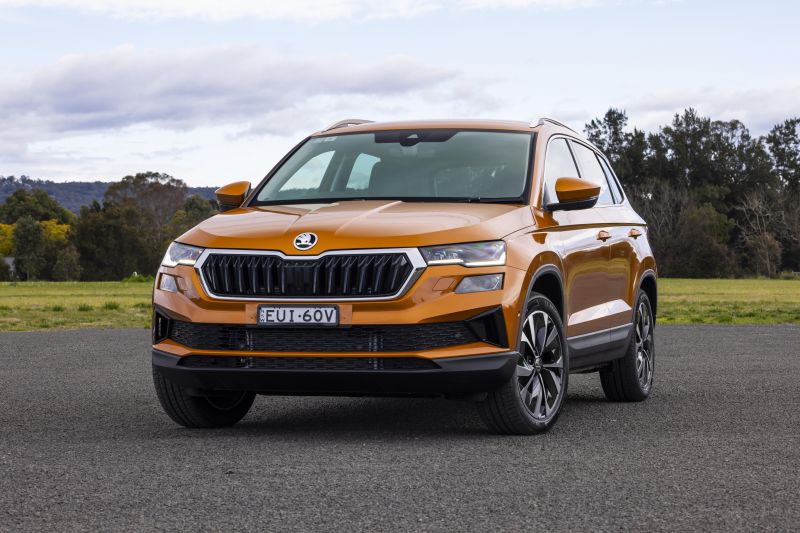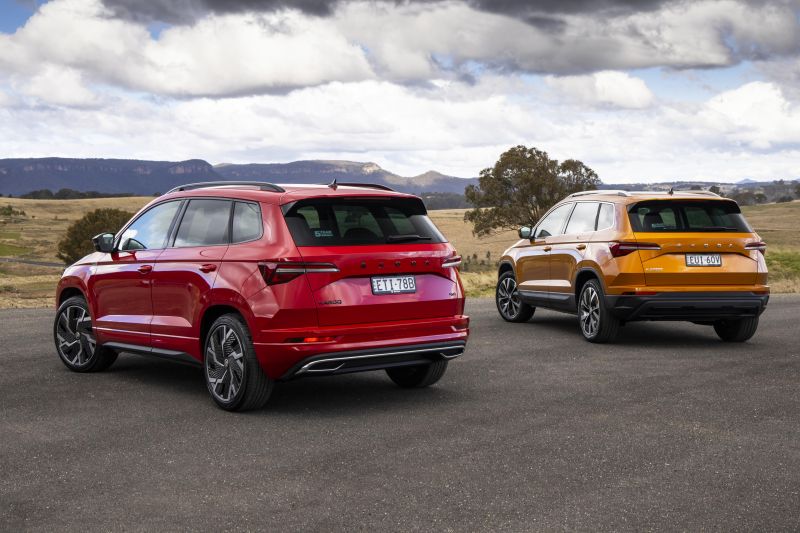If you ask me, the Skoda Karoq is among Australia’s most under-appreciated compact SUVs.
You’d be forgiven for knowing very little about it – although 5000 have found their way into Australian driveways since late 2017 – because tight supply has long held it back.
This is poised to change with the 2023 model that’s arriving now, armed with some mid-cycle updates. This time, Skoda’s middle child between the Kamiq and Kodiaq is poised to shine.
Tweaks include redesigns to the wheels, bumpers, lights, and front grille; while on the inside there are revisions to the interior lighting, steering wheel, upholstery, and screens.
The revised Karoq again comes in two specification levels with different focuses: a base variant that maximises practicality, and a flagship that focuses on premium features and sportiness.
The end result is a bookended range that offers a rather compelling and slightly more compact alternative to the ubiquitous Toyota RAV4, Mazda CX-5, Hyundai Tucson, Kia Sportage and co.

How much does the Skoda Karoq cost?
Two grades of Skoda Karoq are offered, both with national drive-away pricing:
- Skoda Karoq Style: $42,990
- Skoda Karoq Sportline 4×4: $49,990
For a little context, a Mazda CX-5 Maxx Sport FWD is $42,700 drive-away (in Victoria) and a GT SP AWD kicks off at $53,900 drive-away.
Both Karoq versions are $3000 more expensive than the 2022 models, but Skoda counters this by claiming each comes with added features worth more than the price increase.
The value equation does potentially take a hit when it comes to extra-cost options through, most of which are bundled up in packages and detailed further down in the review.
It’s possible to configure a base Karoq Style to cost $58,090 although granted, it’s well-equipped if you do! You can also option up a Karoq Sportline to cost $61,430, again if you want all the features on offer.
We’re not saying Skoda is forcing you to select options. But many Karoqs stocked at dealers will come with some or all of them – our test cars included – so just keep it in mind.
MORE: 2022 Skoda Karoq price and specs
What is the Skoda Karoq like on the inside?
There’s plenty of seat and steering wheel adjustment, meaning people of most shapes and sizes will get comfortable, and visibility out is largely unencumbered.
Both Karoq grades come with a great leather-wrapped three-spoke steering wheel with tasteful stitching, and functions controlled by buttons and roller dials rather than fiddly haptic trackpads. Simply clever indeed…
More importantly the build quality is very good: fit-and-finish is hard to fault, the materials have a semi-premium feel – particularly the softer touch points – and some engineers and designers have clearly put some thought into the overall user-friendliness.
For instance, while there’s too much piano black trimming for my liking, Skoda has stuck with buttons, dials and switches for things like ventilation controls and driving modes.
The Virtual Cockpit digital cluster is standard too, and offers various displays including maps. It’s crisp and highly configurable, which is not always the case with such setups. A head-up display never goes astray, however.
Both Karoq grades offer relatively comfortable front seats, but the Sportline’s have better bolstering for your thighs, befitting its more dynamic focus. The Sportline also has swisher ambient LED interior lighting as standard, which is most welcome at night.
The standard 8.0-inch touchscreen offers wireless phone mirroring (Apple and Android) and wireless charging, digital radio, and an eight-speaker audio system. Skoda overlays the VW Group hardware with its own software or skin, and the graphics are bright and user-friendly.
That said, you want the better 9.2-inch ‘Columbus’ infotainment system, which adds factory satellite navigation alongside the extra screen real estate and a surround-view camera – albeit not a particularly sharp one.
Skoda being Skoda, there’s a plethora of interior storage solutions such as big door bins, a dash-top lidded cubby, a ticket holder, and an array of nets, hooks and plastic storage brackets in the boot. Both also come with a power tailgate with ‘virtual pedal’ kick sensor.
Despite being quite small on the outside (at 4390mm long, it’s 185mm shorter than a CX-5), its back seats are highly spacious. I am 194cm (6ft 4) and had leg- and headroom behind my own driving position, even with the panoramic sunroof option fitted.
Rear air vents are mounted behind the centre console.
The more practicality-minded buyer is urged to look to the Karoq Style, which has the larger boot here at a highly capacious 588 litres, on par with the physically larger Toyota RAV4. By contrast the AWD Sportline stores 521L. Both grades have a reversible carpet and rubber boot mat.
Cleverer still is the front-drive Karoq Style’s VarioFlex back bench, which is split into three seat sections, each of which can slide, tilt, tumble or be removed entirely – turning the Karoq into a delivery van, essentially. You just need somewhere to store ’em!
The AWD Sportline with its inferior packaging makes do with more conventional rear seating, though it remains highly spacious.
What’s under the bonnet?
The Karoq Style uses a 1.4-litre turbocharged four-cylinder petrol making a modest 110kW of power at 6000rpm, but its solid 250Nm of torque as low as 1500rpm adds low-down oomph.
This grade is front-wheel drive and uses an eight-speed automatic like the base VW Golf rather than a DSG. It’s also front-wheel drive, has combined-cycle (95 RON) fuel consumption of 6.5 litres per 100km, and does the zero to 100km/h dash in 9.2 seconds.
Step up to the Karoq Sportline and you get a meatier 2.0-litre turbo-petrol making 140kW and 320Nm (again from 1500rpm), with all-wheel drive and a seven-speed DSG.
Skoda claims fuel consumption of 6.6L/100km and a sprightly 0-100km/h time of 7.0 seconds – which is as quick as your typical decade-old hot hatch.
The Karoq Style is rated to tow 1500kg braked, while the Sportline’s braked-trailer rating is 1900kg. However, both have modest 90kg downball weight ceilings…
How does the Skoda Karoq drive?
The Karoq is pure Volkswagen to drive: fairly quiet, lots of low-down engine torque, and a well-engineered balance between ride comfort and handling in corners.
The Karoq Style’s 1.4-litre engine looks modest on paper but its 250Nm torque output offers good rolling response, and its torque-converter style transmission is more immediately intuitive to those who use aggressive pedal inputs in stop/start traffic.
That said, my launch drive featured just myself in the cabin, not five occupants and baggage.
Because this grade is front-wheel drive, it’s really a hatchback on stilts, with the benefit on this driveline being greater interior space and 165kg less weight.
Not only does the racier Sportline offer more power and torque with a nicer engine note, but it has on-demand AWD and a DSG for more rapid shifts between gears, and better four-link rear suspension.
Our test model also had the optional Dynamic Chassis Control with adjustable damper settings, to stiffen the ride (by reducing up and down body movement) in order to enhance cornering.
It’s not exactly a Tiguan R, but the engine offers plenty of punch and character, while it’s quite well-sorted in more dynamic driving situations.
The main dynamic disappointment is Skoda’s decision to put features such as lane-keeping aid, traffic jam assist, side assist (blind-spot monitoring) and rear traffic alert onto the options list – with the latter two features not even offered on the Style at all.
What do you get?
Karoq Style highlights
- 18-inch alloy wheels
- Space-saver spare
- LED headlights
- LED tail lights with dynamic indicators
- Fog lights
- Electric folding, heated side mirrors
- Rear spoiler
- Silver roof rails
- Rear privacy glass
- Electric tailgate with hands-free operation
- Keyless entry and start
- Rain-sensing wipers
- Front and rear parking sensors
- Door welcome lights with Skoda logo
- VarioFlex removable rear seats
- Front and rear footwell lighting
- Front and rear reading lights
- Three-spoke leather sports steering wheel
- Fabric seat trim
- Floor mats
- Selectable drive modes
- Height-adjustable front seats
- Virtual Cockpit digital instrument cluster (10.25-inches)
- 8.0-inch touchscreen infotainment system
- Wired and wireless Apple CarPlay and Android Auto
- Digital radio
- Eight-speaker sound system
- Wireless phone charger
- USB-C port connectivity
- Dual-zone climate control
- Luggage nets
Kodiaq Style options
- Tech Pack: $5900
- 9.2-inch navigation system w/ gesture control
- Matrix LED headlights
- Adaptive high-beam
- Auto parking assist
- Lane assist
- Surround-view camera
- Traffic jam assist
- Emergency assist
- Ambient lighting
- Premium Pack: $10,900
- Tech Pack
- Leather-appointed upholstery (black or ivory)
- Electric front seats w/ memory
- Heated front and rear seats
- Heat insulating windscreen
- Heated steering wheel w/ DSG paddles
- Headlight washers
- Panoramic sunroof: $1900
- Side steps: $1200
Karoq Sportline adds (over Style)
- 19-inch alloy wheels
- Space-saver spare
- Matrix LED headlights
- Adaptive front lighting system
- Adaptive high-beam
- Fog lights with corner function
- Black shine exterior accents
- Front grille frame
- Door mirrors
- Roof rails
- Window frames
- Black rear diffuser with chrome inserts
- Black headliner and pillar trim
- Rear sports seats (replace VarioFlex)
- Piano black dashboard trim
- Carbon-look door trim
- Stainless steel pedals
- Three-spoke leather sports steering wheel w/ paddles
Kodiaq Sportline Options
- Premium Pack: $5900
- 9.2-inch navigation system w/ gesture control
- Heated front and rear seats
- Heated steering wheel
- Heat insulating windshield
- Headlight washers
- Adaptive chassis control (dampers)
- Park assist
- Lane assist
- Surround-view camera
- Traffic jam assist
- Emergency assist
- Panoramic sunroof: $1900
- Side steps: $1200
- Side Assist with rear cross-traffic alert: $1250
Is the Skoda Karoq safe?
The Skoda Karoq wears a five-star ANCAP safety rating based on Euro NCAP tests conducted in 2017.
All variants are covered by this rating, based on category scores of 93 per cent for adult occupant protection, 79 per cent for child occupant protection, 73 per cent for pedestrian protection, and 58 per cent for safety assist.
Standard safety equipment includes:
- 7 airbags (incl. driver’s knee)
- Autonomous emergency braking (city/pedestrian)
- Adaptive cruise control
- Driver fatigue detection
- Manoeuvre Braking Assist
- Multi-collision brake
- Front and rear parking sensors
- Reversing camera
- Tyre pressure monitoring
- Rear ISOFIX x2, top tethers x 3
Unfortunately features including lane-keep assist, traffic jam assist, side assist, rear cross-traffic alert and emergency assist are part of the options list – as mentioned earlier.
How much does the Skoda Karoq cost to run?
Skoda provides a five-year, unlimited kilometre warranty.
Servicing intervals are 12 months or 15,000km, and you’re best off pre-paying for a transferrable Skoda Service Pack: kicking off at $1550 for five years or 75,000km, and $2400 for seven years or 105,000km of basic servicing.
The latter pack extends your warranty to seven years if you buy before December 31.
The service package costs don’t cover all maintenance; just items in the service schedule – meaning you need to pay extra for things such as tyres, wheel alignments, brake pads, discs, and timing belt. This is not uncommon in the car industry.
You can also pay various degrees of monthly subscriptions to cover either basic servicing, through to packaging up the gamut of running costs almost like a novated lease might.
CarExpert’s Take on the Skoda Karoq
The Karoq is not quite the bargain it was – but what is these days?
However, it remains quite under-appreciated: a smart-looking entry European compact SUV with good road manners, and relatively manageable running costs.
The Karoq Style with its clever back seats and bigger boot is the practical choice, while the Sportline lives up to its name with a punchy engine, AWD traction and – optional again – active dampers, in a package that still stacks up financially against other Euros at least.
Put it this way, if we see you kicking about in a Karoq, we’ll know you put some thought into it. Prospective Mazda CX-5 and Toyota RAV4 buyers should go kick the tyres – you might be surprised.
Click the images for the full gallery
MORE: Everything Skoda Karoq





